iTunes | Google Play | RSS (Soundcloud) | Stitcher
Welcome to the Ada Lovelace Day podcast, highlighting the work of women in STEM. Each month, we talk to women from around the STEM world about their careers, as well as talking to women and men, about historic and modern women’s achievements, discoveries, and inventions.
In this episode
01:23: Structural engineer Roma Agrawal tells us about her work on the iconic Shard skyscraper in London, and the challenges of retrofitting Victorian buildings.
26:15: Biological psychologist Dr Pete Etchells talks about the work of Dr Suzanne Gage, who investigates the relationships between recreational drug use and mental health.
Ada Lovelace Day Live!
ALD Live is an entertaining evening of geekery, comedy and music suitable for everyone over the age of 12. If you’d like to enjoy a taster, take a look at our videos from 2015, 2014 and 2013!
Our amazing ALD Live! speakers this year are:
- Yewande Akinola, design engineer focused on sustainable water supply systems and the engineering design coordination of large projects in the built environment.
- Dr Sheila Kanani, planetary physicist, science presenter, secondary school physics teacher and space comedienne with a background in astrophysics and astronomy.
- Dr Kat Arney, science writer and broadcaster whose work has featured in the New Scientist, Wired, the Guardian, the Times Educational Supplement, BBC Radio 4, the Naked Scientists and more.
- Jenny Duckett, developer with the Government Digital Service.
- Dr Sara Santos, mathematician, director and founder of Maths Busking.
- Dr Bissan Al-Lazikani, computational biologist working on drug discovery for Cancer Research UK.
- Dr Anna Jones, deputy science leader for the British Antarctic Survey’s Atmosphere, Ice and Climate Team.
- Helen Keen, comedian and our fabulous compère.
Tickets are available now for £20/£5, so get yours now before they run out! Find out more about our speakers, venue, tickets and schedule.
Our interviewees
Roma Agrawal

Roma Agrawal is a structural engineer was part of the team that built The Shard. She was awarded ‘Young Structural Engineer of the Year’ in 2011 by the Institution of Structural Engineers and was a finalist in the IET’s Young Woman Engineer award 2012. Roma works to raise awareness of engineering, correct the preconceptions about the field and inspire young people about STEM and engineering.
Read an excerpt from Roma’s More Passion for Science chapter on Brooklyn Bridge engineer Emily Warren Roebling, and watch Roma’s 2014 ALD Live! talk on bridges on YouTube or at the bottom of this post. And you can follow Roma on Twitter: @romatheengineer.
Dr Pete Etchells
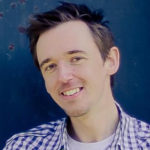 Dr Pete Etchells is a senior lecturer in biological psychology at Bath Spa University, and the science blog network coordinator for the Guardian, where he also writes for the psychology blog Head Quarters. He researches the effects of playing video games on mental health and behaviour, and more generally the effects of technology use on the brain and behaviour. You can follow Pete on Twitter: @peteetchells.
Dr Pete Etchells is a senior lecturer in biological psychology at Bath Spa University, and the science blog network coordinator for the Guardian, where he also writes for the psychology blog Head Quarters. He researches the effects of playing video games on mental health and behaviour, and more generally the effects of technology use on the brain and behaviour. You can follow Pete on Twitter: @peteetchells.
Pete’s subject this month was Dr Suzanne Gage, an epidemiologist who use the Children of the 90s dataset to investigate relationships between recreational drug use and mental health. She has a blog called Sifting the Evidence, which won the 2012 Science Blog prize.
Read an except of Suzi’s Passion for Science chapter on Jean Golding OBE, or follow Suzi on Twitter: @soozaphone.
Thanks to our sponsor
This podcast is brought to you thanks to the generous support of ARM, our exclusive semiconductor industry sponsor. You can learn more about ARM on their website at ARM.com and you can follow them on Twitter at @ARMHoldings.
If you would like to join ARM as a sponsor of the Ada Lovelace Day Podcast, please email us.
Get in touch!
If you’d like to send us feedback about the show, or if you’d like to take part, please email us. We’re especially interested in hear from men who would like to talk to us about the women in STEM who have influenced them, especially those women who are less well known.
Credits
Episode edited by Andrew Marks.
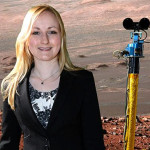 Abbie Hutty is senior spacecraft structures engineer on
Abbie Hutty is senior spacecraft structures engineer on  Anne-Marie Imafidon is Head STEMette and cofounder of
Anne-Marie Imafidon is Head STEMette and cofounder of 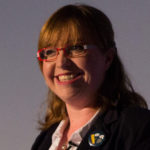 Hazel Gibson is a PhD research student at Plymouth University who works on geoscience cognition and communication; the study of what people think about geology and how they talk about it. With a background in engineering geology and public engagement, Hazel has worked all over the world sharing her curiosity for geological subjects wherever she goes. She blogs at
Hazel Gibson is a PhD research student at Plymouth University who works on geoscience cognition and communication; the study of what people think about geology and how they talk about it. With a background in engineering geology and public engagement, Hazel has worked all over the world sharing her curiosity for geological subjects wherever she goes. She blogs at 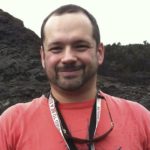 Dr Erik Klemetti is a v
Dr Erik Klemetti is a v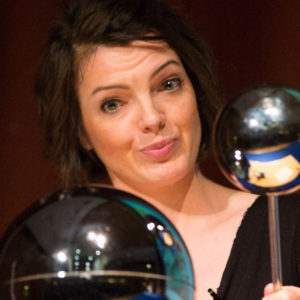 Fran Scott is the only female science presenter on Children’s BBC. A
Fran Scott is the only female science presenter on Children’s BBC. A 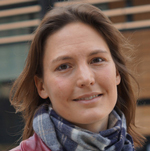 Dr Helen Czerski is a physicist and oceanographer at University College London. When she’s not in the lab or on a boat (or doing both at the same time) she presents science programmes for the BBC. Hew new book,
Dr Helen Czerski is a physicist and oceanographer at University College London. When she’s not in the lab or on a boat (or doing both at the same time) she presents science programmes for the BBC. Hew new book, 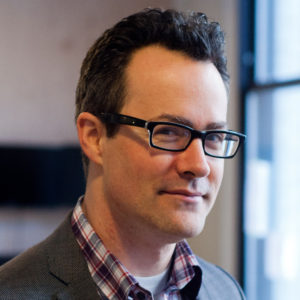 Clive Thompson writes about how technology affects everyday life, and is currently working on his next book, about ‘how programmers think’. He is a contributing writer for the New York Times Magazine and Wired, and author of
Clive Thompson writes about how technology affects everyday life, and is currently working on his next book, about ‘how programmers think’. He is a contributing writer for the New York Times Magazine and Wired, and author of  This podcast is brought to you thanks to the generous support of
This podcast is brought to you thanks to the generous support of